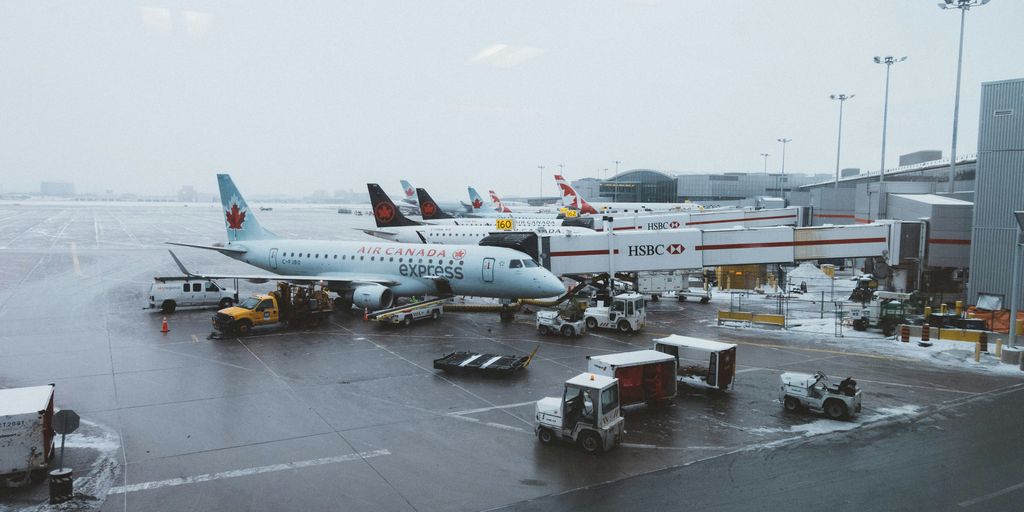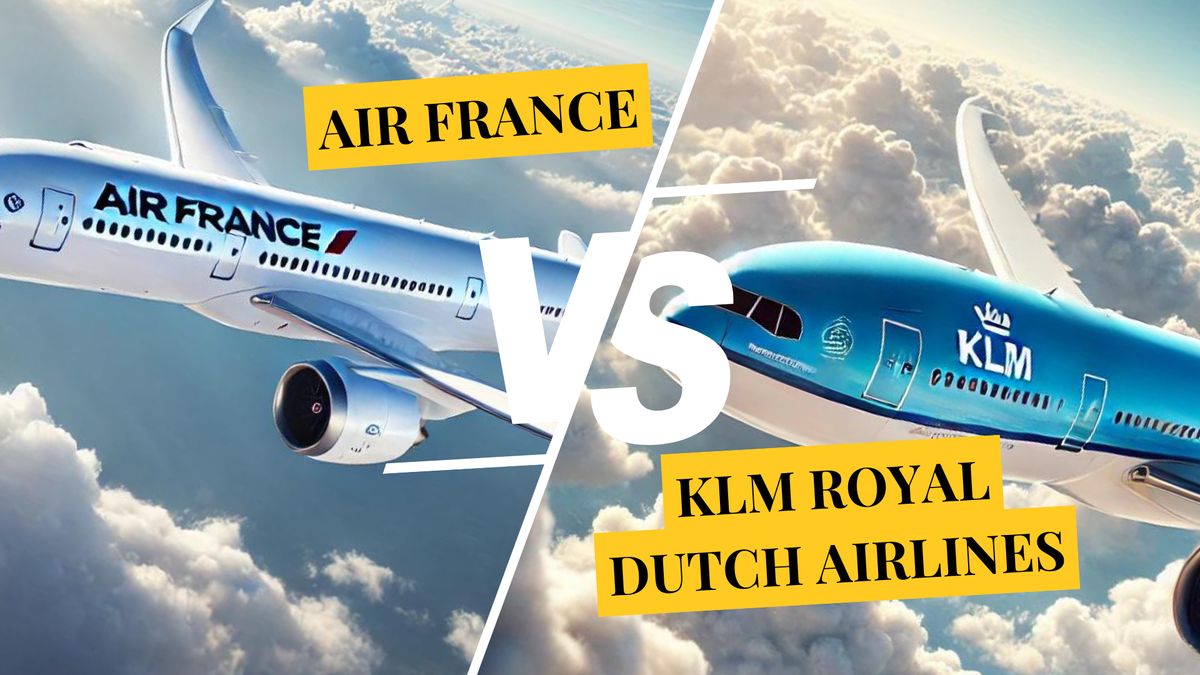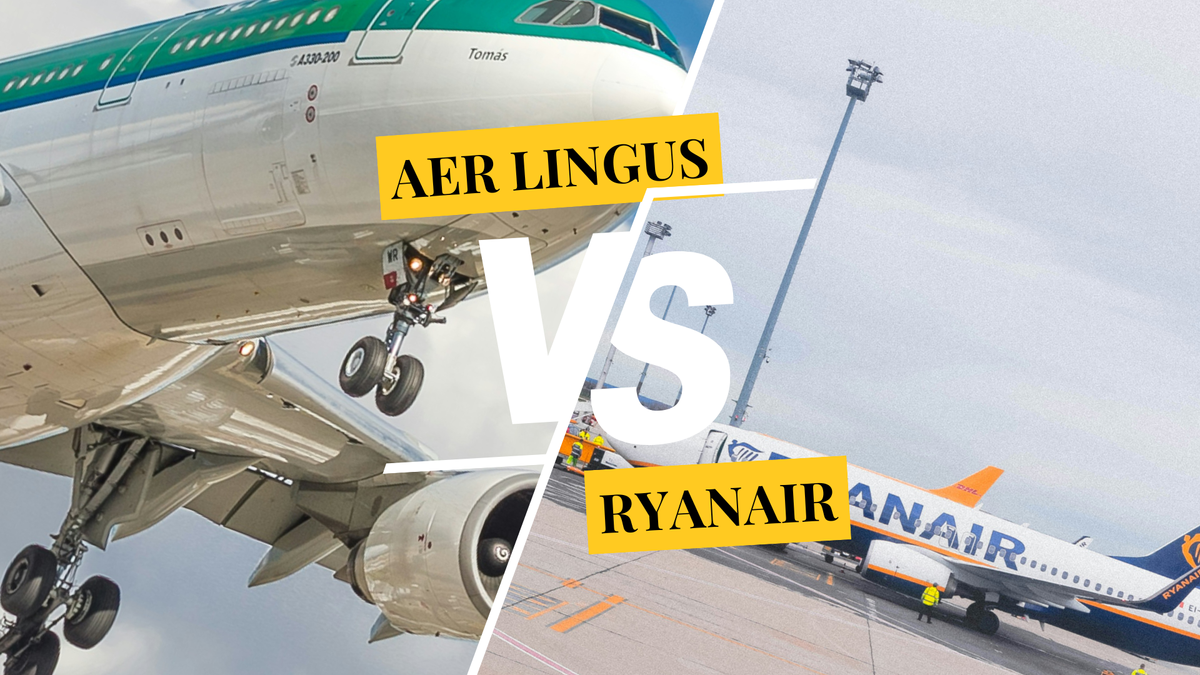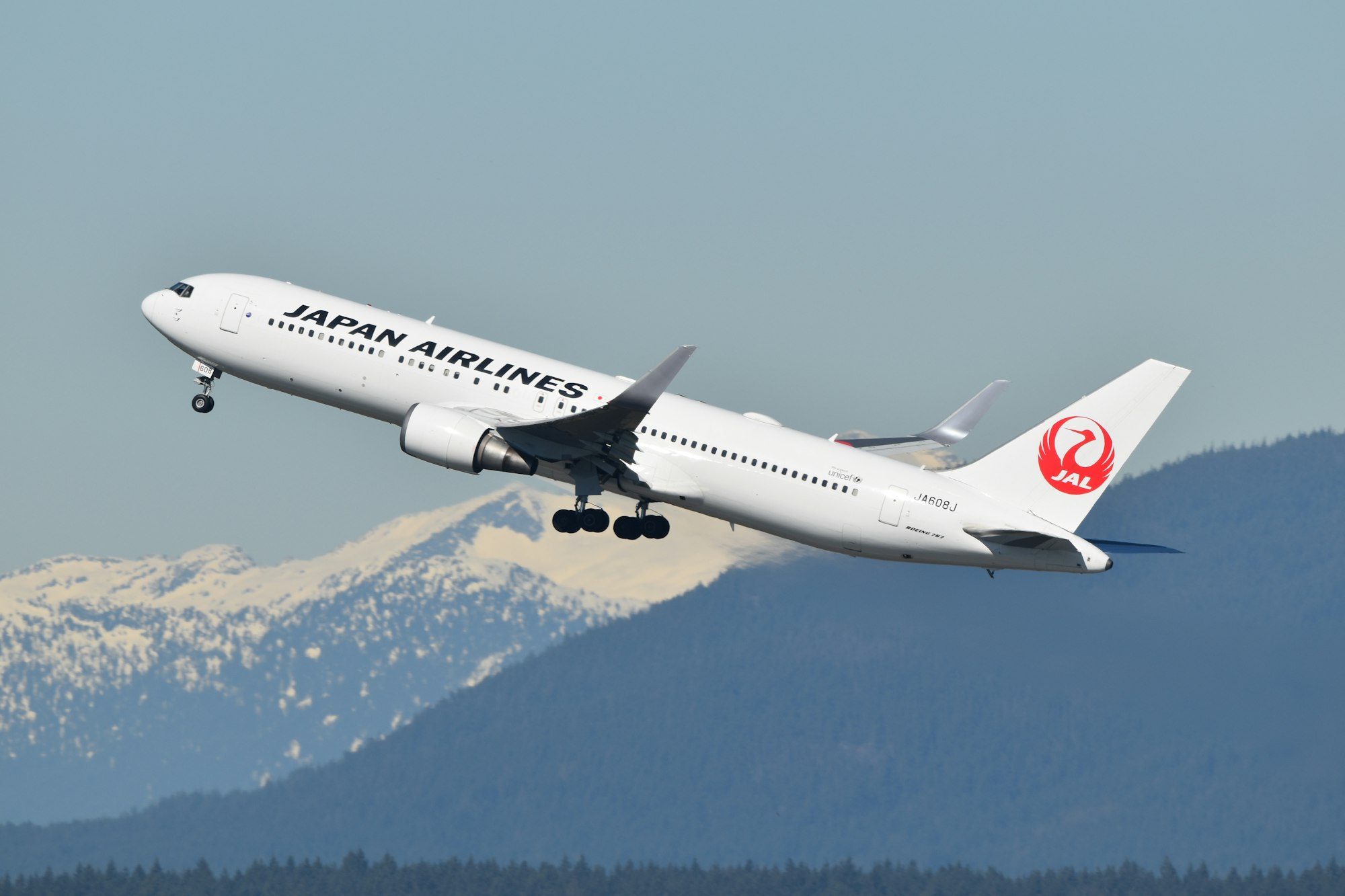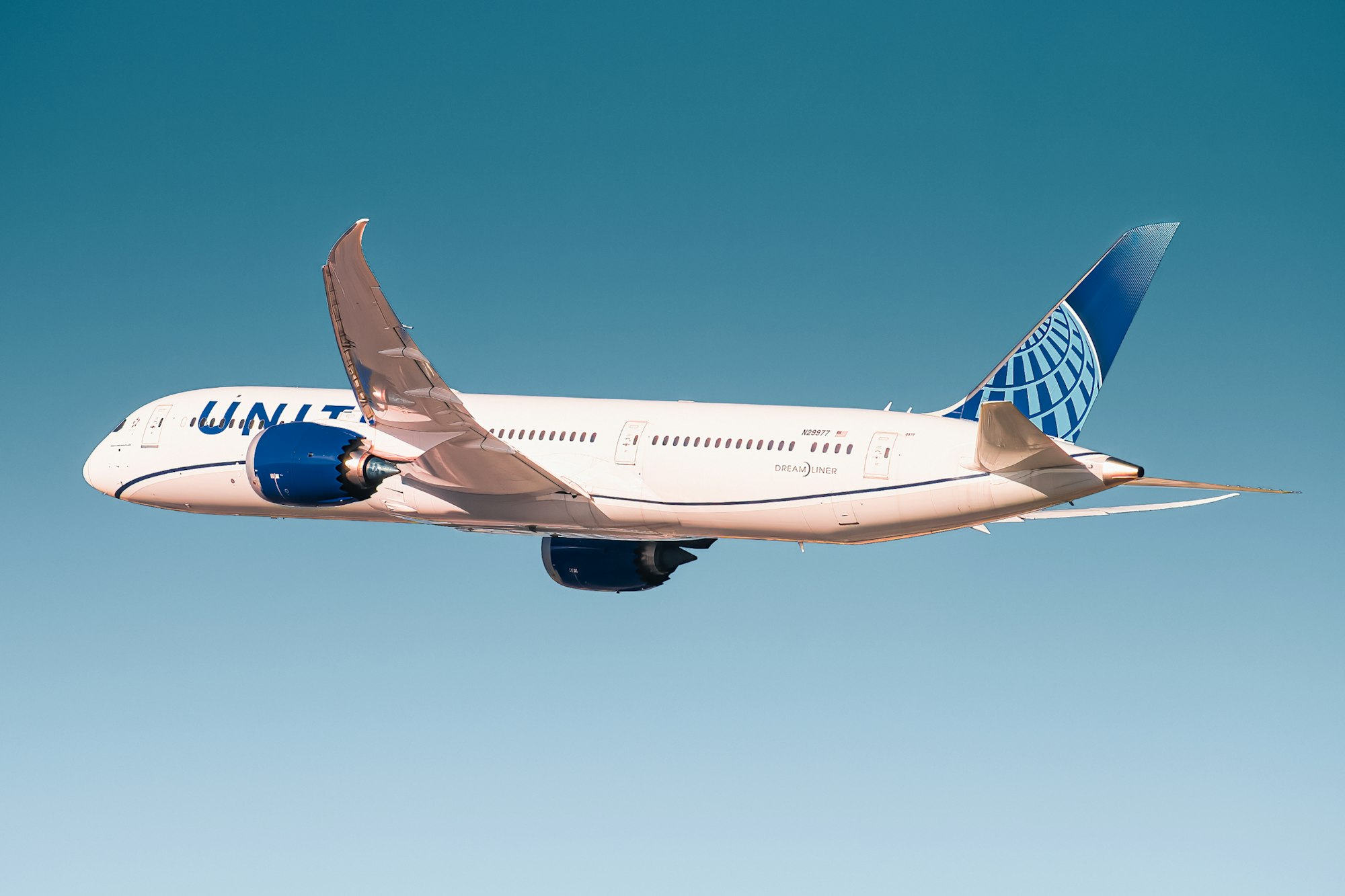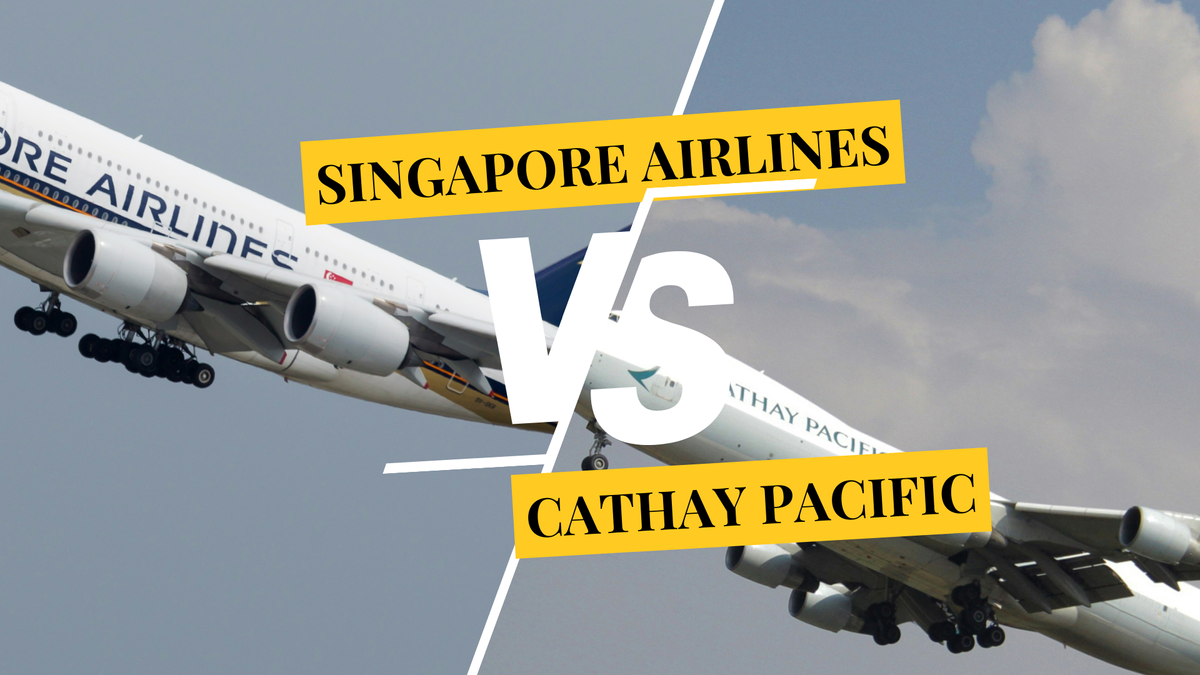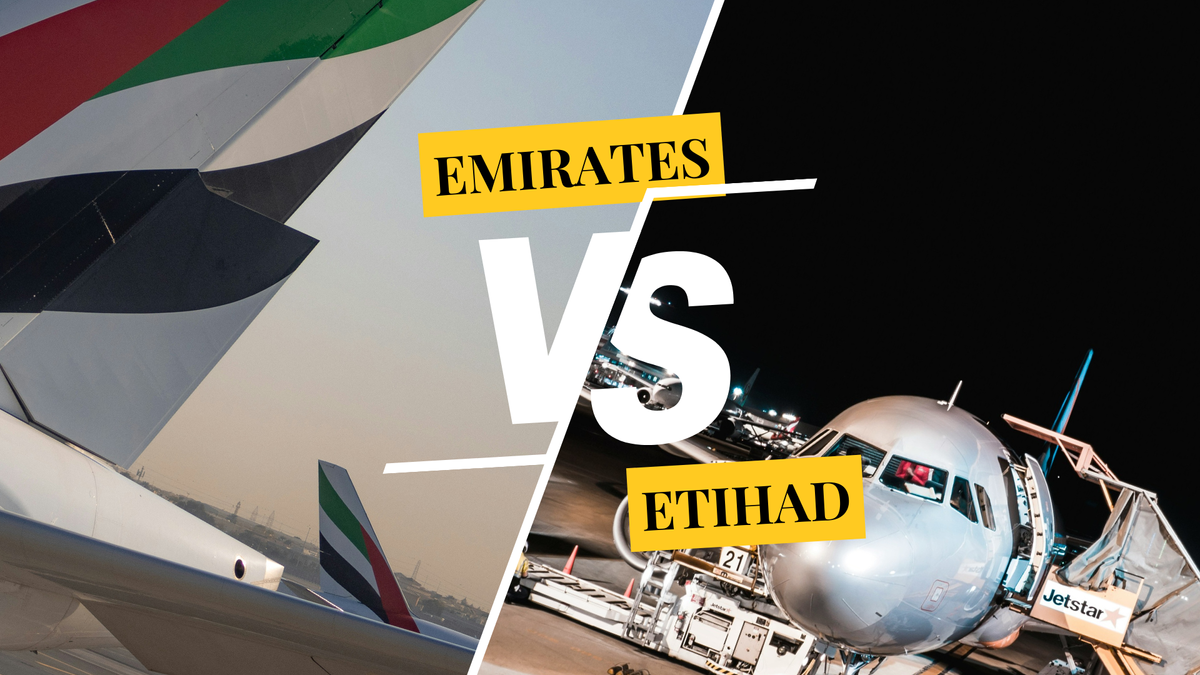When choosing between Qantas and Virgin Australia, travelers often find themselves weighing various factors.
Both airlines have unique strengths and weaknesses, making the decision a bit challenging. This article will help you compare their routes, points, pros, and cons to make an informed choice.
Key Takeaways
- Qantas offers superior frequency between major cities and has better access to larger regional centers.
- Virgin Australia's business class on the 737 is highly regarded, while their economy class is considered average.
- Qantas has more ways to earn points and more hotel partners, making their frequent flyer program more versatile.
- Both airlines have strong international partnerships, but Qantas benefits from the Oneworld alliance for round-the-world redemptions.
- In terms of in-flight experience, Qantas excels in economy class, whereas Virgin Australia shines in business class.
Comparing Domestic Routes
Key Capital Cities
Qantas and Virgin Australia both offer extensive networks connecting key capital cities across Australia. Qantas provides more frequent flights between major hubs like Sydney, Melbourne, and Brisbane. Virgin Australia also covers these routes but with slightly fewer options.
Regional Centers
When it comes to regional centers, Qantas has a broader reach, servicing more remote areas. Virgin Australia focuses on popular regional destinations but doesn't cover as many smaller towns. This makes Qantas a better choice for travelers heading to less accessible locations.
Tasmanian Routes
Both airlines offer flights to Tasmania, with Qantas providing more frequent services to Hobart and Launceston. Virgin Australia also flies to these cities but with fewer daily flights. If you need flexibility, Qantas might be the better option.
International Route Networks
Popular Destinations
Qantas and Virgin Australia both offer a wide range of international routes. Qantas flies to major cities in North America, Europe, and Asia. Virgin Australia, on the other hand, focuses more on destinations in the Asia-Pacific region. Qantas has a broader international reach, making it a better choice for travelers looking to fly to Europe or North America.
Partnerships with Other Airlines
Both airlines have partnerships with other carriers to expand their networks. Qantas is part of the oneworld alliance, which includes airlines like American Airlines and British Airways. Virgin Australia has partnerships with Delta Air Lines and Singapore Airlines. These partnerships allow passengers to earn and redeem points on a wider range of flights, making it easier to find reward seats even on less common routes.
Frequent Flyer Programs
Earning Points
Both Qantas Frequent Flyer and Virgin Australia Velocity allow members to earn points for flights and other travel-related activities. You can earn points on flights, hotel stays, car rentals, and more. One major difference is their earning potential. With Virgin Australia Velocity, you can earn points on flights with Virgin Australia and its partners. Qantas Frequent Flyer members can earn points on Qantas flights and a wider range of partner airlines.
Redeeming Points
Redeeming points is straightforward in both programs. Points can be used for flights, upgrades, hotel stays, and car rentals. Qantas Frequent Flyer offers more options for international flights, while Virgin Australia Velocity is strong in domestic and regional routes. Both programs also allow points to be used for non-flight activities, such as shopping and dining.
Elite Status Tiers
Both Qantas and Velocity Platinum frequent flyers enjoy priority check-in and boarding, as well as boosted checked baggage allowance. Qantas has four elite status tiers: Silver, Gold, Platinum, and Platinum One. Virgin Australia Velocity has three: Silver, Gold, and Platinum. Higher tiers offer more perks, such as lounge access and bonus points on flights.
In-Flight Experience
Economy Class
Flying economy with Qantas and Virgin Australia offers different experiences. Qantas provides a more consistent service with meals and entertainment included on most flights. Virgin Australia, on the other hand, often has more competitive prices but may charge extra for certain amenities.
Business Class
Business class on both airlines is designed for comfort. Qantas offers lie-flat seats on many routes, while Virgin Australia provides spacious seating and excellent service. Both airlines aim to make your journey as comfortable as possible, but Qantas often has the edge in terms of seat comfort.
In-Flight Service
The in-flight service on Qantas is generally praised for its quality and consistency. Virgin Australia also offers good service, but it can vary more between flights. Passengers often find that Qantas staff are more attentive and professional, making it a preferred choice for many travelers.
When choosing between Qantas and Virgin Australia, consider what matters most to you: consistent service or potentially lower costs. Both airlines have their strengths, but Qantas is often seen as the most famous airline in Australia for a reason.
Airport Lounges: The Hidden Cities Within Airports
Beyond the bustling terminals and crowded gates, Australia's two major carriers have created distinct worlds for their premium passengers and loyal frequent flyers. These spaces tell different stories about each airline's vision of luxury and comfort, reflecting broader philosophies about the travel experience.
The Qantas Lounge Hierarchy
Qantas's lounge network operates like a carefully structured private club system, with each tier offering progressively more refined experiences. At the pinnacle sits the invitation-only Chairman's Lounge, a space so exclusive that many frequent flyers speak of it in reverent whispers. These ultra-premium sanctuaries, found in major hubs like Sydney and Melbourne, redefine airport luxury with their à la carte dining, private meeting rooms, and personal hosts who remember returning guests' preferences down to their preferred morning newspaper.
The First Class lounges in Sydney and Melbourne, designed by Marc Newson, represent Qantas's interpretation of worldclass luxury. Here, the celebrated Salt House dining experience transforms airport food from mere sustenance into genuine culinary artistry. The Sydney First lounge's marble-lined entrance and soaring windows overlooking the runway create an atmosphere that makes the traditional rush to the gate feel almost regrettable.
Business lounges across the network showcase Qantas's talent for balancing efficiency with comfort. The airline's signature preset working spaces, equipped with individual power supplies and enhanced Wi-Fi nodes, attract business travelers who view these lounges as satellite offices. The Perth International Business lounge has pioneered several wellness initiatives, including light therapy in shower suites to help travelers adjust to new time zones.
Virgin Australia's Boutique Approach
Virgin Australia's lounge network tells a different story, one of intimate luxury and personalized service. Rather than competing directly with Qantas's extensive hierarchy, Virgin has created spaces that feel more like private clubs than traditional airport lounges. Their flagship domestic lounge in Melbourne exemplifies this approach, with its coffee bar staffed by trained baristas who quickly learn regular travelers' preferred brews.
The airline's Brisbane lounge demonstrates Virgin's talent for turning space constraints into advantages. By focusing on quality over quantity, they've created an environment where premium travelers often find themselves on first-name terms with lounge staff. The morning rush here transforms into a remarkably civilized affair, with fresh barista-made coffee and made-to-order breakfast dishes replacing the standard buffet scramble.
The Art of Access
Understanding lounge access policies requires nearly as much study as frequent flyer programs themselves. Qantas's tiered system generally provides broader access but with more complex restrictions. Gold status members might find themselves welcomed into domestic business lounges but directed to partner lounges at international terminals. The airline's oneworld alliance partnerships expand access globally but introduce varying standards that seasoned travelers learn to navigate carefully.
Virgin Australia's simpler structure trades breadth for clarity. Their partnership with Priority Pass and pay-per-visit options makes lounge access more democratic, though this occasionally leads to capacity challenges during peak hours. Savvy travelers note that Virgin's more limited lounge network often means less crowded spaces, particularly during off-peak hours.
Time and Space: The Daily Rhythm of Lounges
Each lounge develops its own daily personality. Qantas's Sydney domestic business lounge transforms from a power breakfast venue to a quiet midday retreat before evolving into an early evening wine bar. The airline's famous sunset drink service signals this transition, with staff efficiently switching from coffee service to wine presentations.
Virgin's lounges embrace their smaller scale by creating intimate zones that serve multiple purposes throughout the day. Their premium entry facilities in major airports have mastered the art of the swift transition, helping travelers move from curbside to lounge in minutes during morning rush hours.
Beyond the Buffet
Food and beverage offerings reveal each airline's distinct approach to hospitality. Qantas partners with leading Australian chefs to create seasonal menus that showcase regional produce. Their Neil Perry-influenced dishes change regularly, while the wine lists feature carefully curated Australian vintages. The introduction of made-to-order dishes in select domestic lounges marks an ambitious elevation of the traditional lounge dining experience.
Virgin Australia counters with a focus on quality over variety. Their partnership with chef Luke Mangan has produced a menu that, while more limited than Qantas's extensive offerings, maintains consistent quality throughout the day. Their evening bar service has developed a following for its cocktail offerings, turning departure delays into impromptu social occasions.
The Future of Lounge Life
Both airlines are reimagining lounge spaces for a post-pandemic world. Qantas leads with technology, introducing automated check-in processes and digital ordering systems that minimize contact while maximizing efficiency. Their upcoming lounge renovations promise to incorporate lessons learned about personal space and hygiene without sacrificing the social aspects that make airport lounges special.
Virgin Australia's future plans emphasize sustainability and wellness, with new initiatives focusing on reducing waste and introducing more health-conscious food options. Their boutique approach may prove particularly well-suited to travelers' increased desire for personal space and controlled environments.
For travelers choosing between these airlines, lounge access can be a deciding factor. Qantas offers breadth, variety, and established luxury, while Virgin Australia provides intimate spaces with personalized service. Understanding these differences helps travelers choose not just an airline, but the kind of travel experience they value most.
Access and Amenities
Paid lounge access with Qantas and Virgin Australia comes at very different price points, with benefits to match. Qantas Club membership is generally more expensive but offers access to a larger number of lounges. Virgin Australia's lounge membership is more affordable and provides good value for frequent flyers. Both airlines offer lounge access to elite status members and business class passengers.
Spending time in an airport lounge can make your travel experience much more enjoyable. Whether you choose Qantas or Virgin Australia, you'll find a range of amenities designed to help you relax and recharge before your flight.
Business Class Comparison
Cabin Comfort
When it comes to cabin comfort, both Qantas and Virgin Australia offer a premium experience. Qantas provides fully flat beds on most of its long-haul flights, ensuring a restful journey. Virgin Australia, on the other hand, has been a real game-changer with its spacious seating and modern design. Both airlines prioritize passenger comfort, but Virgin Australia's newer fleet often gives it a slight edge.
Service Quality
Service quality in business class is top-notch for both airlines. Qantas is known for its attentive and professional crew, always ready to assist. Virgin Australia also excels in this area, with friendly and approachable staff. The competition between the two has led to a noticeable improvement in service standards, making it hard to choose a clear winner.
Additional Perks
Business class passengers on both airlines enjoy a range of additional perks. These include priority boarding, extra baggage allowance, and access to exclusive lounges. Qantas offers a more extensive network of lounges, but Virgin Australia's lounges are often praised for their modern amenities and relaxed atmosphere. Both airlines also provide high-quality in-flight dining and entertainment options, ensuring a pleasant experience from start to finish.
Economy Class Comparison
Seat Comfort
When it comes to seat comfort, Qantas generally has the upper hand. Their seats are often more spacious and offer better legroom compared to Virgin Australia. Passengers frequently report a more comfortable experience on Qantas flights. Virgin Australia, while still comfortable, tends to have slightly narrower seats.
In-Flight Entertainment
Qantas provides a robust in-flight entertainment system with a wide selection of movies, TV shows, and music. Each seat is equipped with a personal screen, making it easy for passengers to enjoy their preferred content. Virgin Australia also offers in-flight entertainment, but the selection is not as extensive as Qantas.
Meal Service
Qantas is known for its superior meal service in economy class. The airline offers a variety of meal options, including special dietary meals, and the quality is generally high. Virgin Australia's meal service is decent but doesn't quite match up to the variety and quality offered by Qantas.
Overall, if you're flying economy, Qantas tends to provide a more comfortable and enjoyable experience compared to Virgin Australia.
Carrier Surcharges and Fees
Ticket Prices
When comparing ticket prices, Qantas and Virgin Australia have different pricing structures. Qantas tends to have higher base fares, but they often include more amenities. Virgin Australia, on the other hand, usually offers lower base fares but may charge extra for additional services.
Additional Charges
Both airlines have various additional charges that passengers should be aware of. These can include fees for checked baggage, seat selection, and in-flight meals. Virgin Australia generally has lower fees for these extras compared to Qantas.
Frequent Flyer Surcharges
Frequent flyer surcharges can add up, especially on international routes. Virgin Australia's Velocity program has relatively low taxes and fees for award bookings, but these can increase significantly for international flights or when flying with partner airlines like Etihad or Delta. Qantas Frequent Flyer surcharges are typically higher, especially for premium cabins and long-haul flights.
It's important to consider all potential surcharges and fees when booking flights, as they can significantly impact the overall cost of your trip.
Hotel and Travel Partnerships
Hotel Chains
Both Qantas and Virgin Australia have strong partnerships with major hotel chains. Qantas collaborates with Accor Live Limitless, Hilton Honors, and Marriott Bonvoy, allowing frequent flyers to earn and redeem points for hotel stays. Virgin Australia, on the other hand, partners with IHG Rewards, Radisson Rewards, and World of Hyatt, offering similar benefits to its members.
Car Rentals
When it comes to car rentals, Qantas has tie-ups with Avis, Budget, and Hertz, providing members with the opportunity to earn points on rentals. Virgin Australia also offers car rental partnerships with Europcar, Thrifty, and Hertz, ensuring that travelers can earn points while on the road.
Travel Packages
Both airlines offer comprehensive travel packages that include flights, hotels, and car rentals. These packages are designed to provide convenience and value, making it easier for travelers to plan their trips. Qantas offers special deals through its Qantas Holidays program, while Virgin Australia provides similar packages through its Virgin Australia Holidays service.
These partnerships enhance the travel experience by offering more ways to earn and redeem points, making every trip more rewarding.
Customer Service and Support
The true measure of an airline reveals itself not during smooth flights, but in moments of disruption and uncertainty. Both Qantas and Virgin Australia have developed distinct approaches to customer care, each reflecting their broader corporate philosophies and service cultures.
Digital Support Evolution
Qantas has invested heavily in digital transformation, creating an ecosystem of support that begins with their comprehensive mobile app. The airline's digital platform handles everything from instant flight changes to real-time baggage tracking, often resolving issues before travelers need to speak with a representative. Their automated support system excels at processing routine requests, though some passengers report frustration when trying to escalate beyond the digital interface for more complex issues.
Virgin Australia takes a more personalized approach to digital support, maintaining a hybrid system that makes it easier to reach human agents when automated solutions fall short. Their social media response team has earned particular praise for swift intervention during travel disruptions, often responding to passenger queries within minutes on platforms like Twitter and Facebook.
Real-World Crisis Management
When weather disrupts travel plans or mechanical issues ground aircraft, the contrasting service philosophies of these carriers become most apparent. Qantas leverages its larger infrastructure to provide more rebooking options during major disruptions, with dedicated crisis teams activating at major hubs like Sydney and Melbourne. Their proactive communication strategy includes automated SMS updates and email notifications, though some travelers report these systems can sometimes feel impersonal.
Virgin Australia compensates for its smaller network through remarkably flexible customer service policies during disruptions. Their front-line staff often receive praise for going beyond standard procedures to assist stranded passengers, arranging hotel accommodations or alternative transportation even when not strictly required by company policy.
Special Assistance Services
Qantas has developed one of the most comprehensive special assistance programs in the Asia-Pacific region, with dedicated support teams at major airports and detailed pre-flight planning services for passengers requiring extra help. Their staff undergoes specialized training in assisting travelers with mobility issues, hidden disabilities, and medical requirements, creating a more inclusive travel experience.
Virgin Australia's special assistance program, while smaller in scale, often receives higher satisfaction ratings from passengers. Their more intimate airport operations allow for more personalized attention, with staff members frequently remembered by name by regular travelers requiring special assistance. The airline's partnership with various disability advocacy organizations has helped shape policies that prioritize dignity and independence.
Complaint Resolution and Recovery
The way airlines handle service failures often determines long-term customer loyalty. Qantas maintains a structured complaint resolution process, with clear escalation paths and standardized compensation policies. While this system ensures consistency, it can sometimes feel rigid to passengers seeking exceptions to standard procedures.
Virgin Australia's more flexible approach to complaint resolution allows for greater discretion among customer service representatives. Their "Make It Right" program empowers front-line staff to offer immediate solutions, from lounge passes to flight credits, often resolving issues before they require formal complaints.
Language and Cultural Support
In an increasingly global market, both carriers have expanded their language support capabilities, though with different emphases. Qantas provides customer service in twelve languages through their global contact centers, with particular strength in Asian languages reflecting their international route network. Their cultural awareness training for staff has become a model for other carriers in the region.
Virgin Australia focuses on depth rather than breadth in language support, offering fewer languages but maintaining higher standards of cultural competency among their service staff. Their domestic focus allows for more specialized training in supporting Indigenous Australian travelers and international tourists visiting Australia for the first time.
The Digital-Personal Balance
The future of airline customer support lies in balancing digital efficiency with human connection, an area where both carriers continue to evolve. Qantas's significant investment in artificial intelligence and machine learning aims to predict and prevent service issues before they affect travelers. Their predictive maintenance systems and automated rebooking algorithms represent the cutting edge of aviation technology.
Virgin Australia maintains a more human-centered approach while still embracing digital innovation. Their hybrid model emphasizes using technology to support rather than replace personal interaction, leading to consistently higher customer satisfaction scores in direct support scenarios.
For travelers choosing between these carriers, the decision often comes down to personal preferences in service style. Those who value efficient, technology-driven solutions might prefer Qantas's more structured approach. Passengers who prioritize personal connection and flexibility often find Virgin Australia's service culture more appealing. In either case, both airlines continue to raise the bar for customer support in Australian aviation.
Overall Pros and Cons
Strengths of Qantas
- Extensive domestic and international route network: Qantas offers a wide range of destinations both within Australia and globally, making it a versatile choice for travelers.
- High-quality in-flight service: Passengers often praise Qantas for its attentive and friendly cabin crew.
- Comprehensive frequent flyer program: Qantas Frequent Flyer offers numerous ways to earn and redeem points, along with various elite status tiers.
Strengths of Virgin Australia
- Competitive pricing: Virgin Australia often provides more affordable ticket options compared to Qantas.
- Comfortable seating: Many travelers find Virgin Australia's seats to be more comfortable, especially in economy class.
- Strong focus on customer service: Virgin Australia is known for its excellent customer support and service quality.
Areas for Improvement
- Qantas: While Qantas excels in many areas, some passengers feel that the airline's ticket prices can be quite high, especially for last-minute bookings.
- Virgin Australia: Although Virgin Australia offers competitive pricing, its route network is not as extensive as Qantas, which can limit travel options for some passengers.
Both Qantas and Virgin Australia have their unique strengths and areas where they can improve. Choosing between them often depends on individual travel needs and preferences.
Conclusion
In the end, both Qantas and Virgin Australia have their own set of strengths and weaknesses. Qantas stands out with its superior lounges, better frequency between major cities, and extensive access to regional centers. On the other hand, Virgin Australia shines with its impressive 737 business class and better service on certain routes. When it comes to earning points and frequent flyer status, Qantas takes the lead with more ways to earn points and more hotel partners. However, Virgin Australia offers unique advantages on specific routes and has a strong presence in certain airports. Ultimately, the best choice depends on your personal travel needs and preferences. Whether you prioritize lounge access, in-flight service, or earning points, both airlines offer valuable options for travelers.
Frequently Asked Questions
Which airline has better lounges, Qantas or Virgin Australia?
Qantas has the best lounges, especially in bigger regional centers and key capital cities. Virgin Australia doesn't have lounges in Tasmania, which is a downside for travelers there.
Which airline has better business class, Qantas or Virgin Australia?
Virgin Australia probably has a better 737 business class product. Their cabins are smaller and have a fresher look. The in-flight service is also good.
How do you earn frequent flyer status with Qantas and Virgin Australia?
Both Qantas and Virgin Australia have frequent flyer programs with Silver, Gold, and Platinum levels. Qantas also has an extra level called Platinum One. You can earn status by flying frequently and accumulating points.
Which airline offers more ways to earn points?
Qantas offers more ways to earn points. They have more hotel partners and a wider range of partner airlines compared to Virgin Australia.
Which airline has better economy class service?
Qantas generally has better economy class service. Their in-flight service is better, and they have a good lounge infrastructure.
Do both airlines have partnerships with other airlines?
Yes, both airlines have partnerships with other airlines. However, Qantas has an edge due to the Oneworld alliance, which offers great value for round-the-world redemptions.
Which airline has better frequency of flights?
Qantas generally has better frequency between key capital cities and bigger regional centers. Virgin Australia, however, offers better frequency out of Tasmania.
Can you earn points on hotel stays with both airlines?
Yes, you can earn points on hotel stays with both airlines. Qantas has partnerships with hotel chains like Hilton and Marriott, while Virgin Australia also has hotel partners.
More comparisons between airlines
